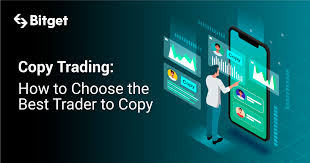Trading, in its most fundamental form, is the exchange of goods and services. It’s a practice that dates back to the dawn of human civilization, evolving from simple bartering systems to the sophisticated digital trading platforms we have today. This article explores the fascinating journey of copy trading, examining its transformation through the ages and how it has shaped our modern economy.
The Dawn of Trade: Barter Systems
In ancient times, trade was primarily based on barter—the direct exchange of goods and services without a standardized medium of exchange. Early civilizations traded items like grains, livestock, and tools. The challenge of bartering lay in the “double coincidence of wants,” where both parties needed to desire what the other had to offer. Despite its limitations, barter laid the groundwork for more advanced trading systems.
The Birth of Money: A New Era
The limitations of barter prompted the creation of money, a revolutionary development that facilitated trade by providing a common measure of value. The earliest forms of money included precious metals like gold and silver, which were valued for their intrinsic worth and scarcity. Over time, paper currency and coins emerged, further simplifying transactions and expanding trade opportunities.
The Rise of Stock Markets: Trading Takes a Formal Turn
The 17th century marked a significant milestone with the establishment of the first stock exchanges in Amsterdam and London. These early stock markets allowed individuals to buy and sell shares in companies, paving the way for modern financial trading. The concept of trading ownership in businesses transformed the economic landscape, enabling companies to raise capital and investors to earn returns on their investments.
The Digital Revolution: Trading in the Age of Technology
The late 20th and early 21st centuries witnessed a technological revolution that dramatically changed the nature of trading. The advent of computers and the internet gave rise to electronic trading platforms, making it possible to execute trades at the speed of light. Online brokers and trading apps democratized access to financial markets, allowing individual investors to participate alongside institutional players.
Algorithmic and High-Frequency Trading: The New Frontier
As technology advanced, so did trading strategies. Algorithmic trading, which uses computer algorithms to execute trades based on predefined criteria, became prevalent. High-frequency trading (HFT) took this a step further, leveraging ultra-fast data feeds and trading systems to make numerous trades within milliseconds. While these innovations have increased market efficiency, they have also raised concerns about market stability and fairness.
The Impact of Cryptocurrency: A Paradigm Shift
The introduction of cryptocurrencies like Bitcoin in the late 2000s represents another transformative shift in trading. Digital currencies operate on decentralized networks, independent of traditional financial institutions. Cryptocurrencies have not only created new investment opportunities but also sparked debates about their potential to disrupt existing financial systems.
The Future of Trading: Emerging Trends and Technologies
Looking ahead, several trends and technologies are poised to shape the future of trading. Artificial intelligence (AI) and machine learning are expected to play a significant role in analyzing market data and predicting trends. Additionally, blockchain technology, which underpins cryptocurrencies, has the potential to enhance transparency and security in trading processes.
Conclusion
Trading has come a long way from its humble beginnings in barter systems to the complex, technology-driven markets of today. Each phase of this evolution has brought new opportunities and challenges, reflecting the ever-changing nature of the global economy. As technology continues to advance, the future of trading promises to be as dynamic and transformative as its past.


